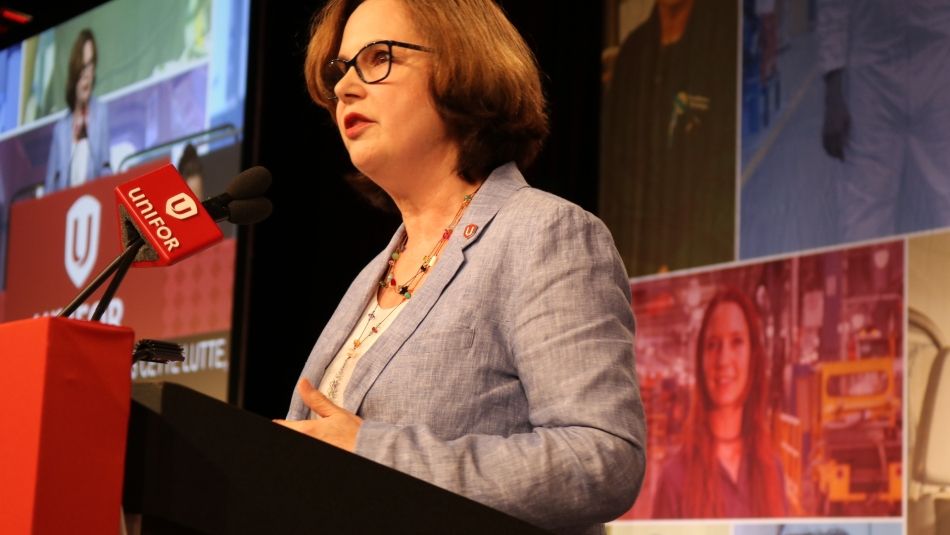
Share
Western Regional Director Joie Warnock outlined the region’s key political and bargaining victories in the last year and discussed member activists’ strategies for defending gains and charting new paths.
From John Horgan’s British Columbia, where minimum wage gains and massive childcare investments are increasing the standard of living, to Brian Pallister’s Manitoba, where working people’s rights have been undermined and public services are suffering, the Western Region has diverse challenges and opportunities.
“Unifor members across our region have struggled with determination and dignity,” said Joie Warnock, Unifor Western Regional Director. “Whether it be fighting government attempts at wage rollbacks, layoffs or threats to claw back benefits, Unifor members have risen to the occasion.”
In Alberta, Unifor members have used their unprecedented access to government to push for worker-friendly policies. In just one term, the Rachel Notley government has introduced a $15 minimum wage, legal workplace protections to farmworkers, taken big money out of politics, and reformed a wide range of employment laws.
Warnock is also proud of the role played by Unifor members to push the government to put significant resources into just transition and energy sector diversification.
Warnock described how the conservative government in Saskatchewan has presented more challenges. She reviewed the careful planning of the Stand Up For Your Crowns campaign and how it made privatizing the province’s major Crown corporations politically toxic. Unifor helped make one of Canada’s most popular premiers, Brad Wall, a “has-been” who resigned before the end of his third mandate.
Unifor activists next door in Manitoba plan on importing the successful Crowns campaign from Saskatchewan to protect their province’s public services, especially Manitoba Hydro, where the premier has begun to sow seeds of crisis to undermine the utility.
Warnock also reviewed the myriad of collective bargaining gains and upcoming negotiations in the region. She gave a nod to the Local 3000 members at the Sheraton Guildford hotel in Surrey, British Columbia who took on a bad boss during a four-week strike to achieve a fair collective agreement.
The Western Canadian economy relies on natural resource sectors, and Unifor represents tens of thousands of workers in these industries. Warnock’s report discussed the importance of resolving forestry trade disputes with the United States. She said many communities in coastal British Columbia are particularly vulnerable to unfair tariffs.


